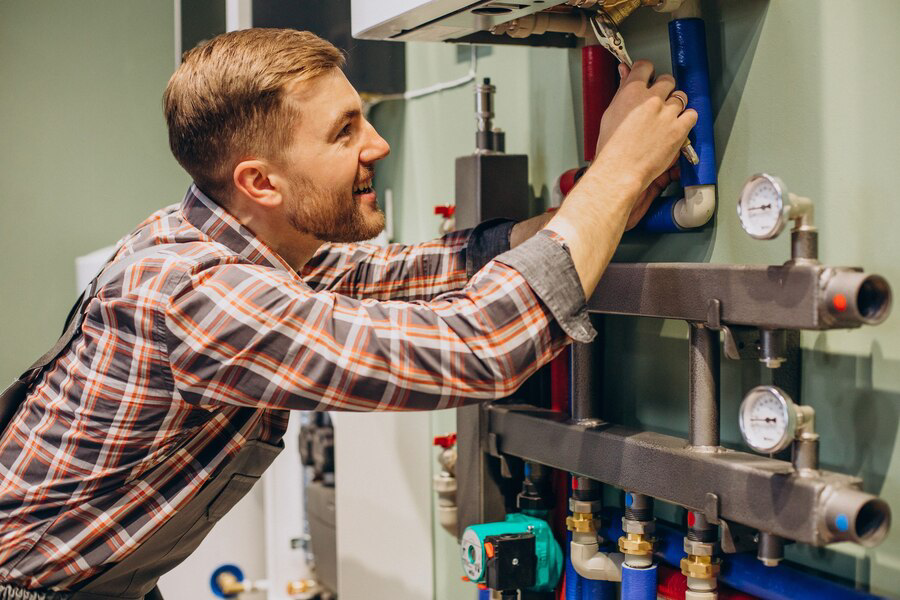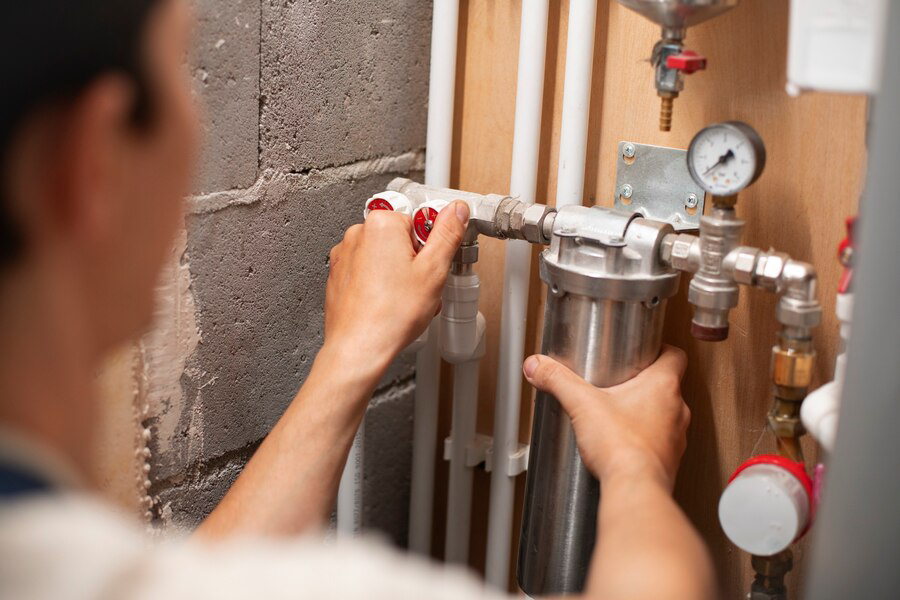Hot water systems are the unsung heroes of our homes, quietly ensuring we have warm showers, clean dishes, and cozy laundry days. Yet, like any hardworking appliance, they require regular TLC to keep functioning optimally. In this blog, we delve into the crucial topic of why regular maintenance is the cornerstone of a reliable hot water system. Whether your system runs on gas, electricity, or is a tankless model, neglecting maintenance can lead to a host of problems, from decreased efficiency and increased energy bills to unexpected breakdowns and costly repairs. By understanding the importance of proactive upkeep, homeowners can extend the lifespan of their hot water systems, maximize performance, and enjoy uninterrupted comfort. Join us as we explore the benefits of routine maintenance and unveil simple tips to keep your hot water flowing smoothly year-round.
The Importance of Regular Maintenance for Your Hot Water System
Regular maintenance of your hot water system is crucial for preventing costly repairs down the line. Just like any other appliance, hot water systems require regular upkeep to ensure they operate efficiently and reliably. Neglecting maintenance can lead to small issues escalating into major problems, resulting in expensive repair bills. Here’s why preventing costly repairs through regular maintenance should be a priority for every hot water system owner:

- Identifying Small Issues Early: Regular maintenance involves thorough inspections of your hot water system by trained professionals. During these inspections, technicians can identify any minor issues such as leaks, corrosion, or component wear before they develop into more significant problems. By addressing these issues early on, you can avoid costly repairs that may arise if left unchecked.
- Preventing Component Failure: Over time, components of your hot water system can wear out or become damaged due to regular use and exposure to water and minerals. Routine maintenance tasks such as cleaning, lubricating moving parts, and checking for signs of wear can help prevent premature failure of critical components such as heating elements, thermostats, valves, and seals. Replacing these components before they fail completely can save you from expensive repair or replacement costs.
- Ensuring Efficient Operation: A well-maintained hot water system operates more efficiently, which can help lower your energy bills and reduce the risk of costly repairs. For example, sediment buildup in the tank or pipes can decrease the system’s efficiency by insulating the heating elements and reducing heat transfer. Regular flushing of the system to remove sediment buildup can help maintain optimal efficiency and prevent overworking the heating elements, prolonging their lifespan and reducing the likelihood of failure.
- Preserving Water Quality: Sediment buildup and corrosion inside your hot water system can not only affect its performance but also compromise the quality of the water it produces. Rusty or discolored water, foul odors, or metallic tastes are common signs of water quality issues caused by neglected maintenance. Regular flushing and cleaning of the tank and pipes can help prevent sediment buildup and ensure that your hot water remains clean, clear, and safe to use.
- Compliance with Warranty Requirements: Many hot water system manufacturers require regular maintenance as a condition of their warranty coverage. Failure to adhere to these maintenance requirements can void your warranty, leaving you responsible for covering the cost of repairs or replacements out of pocket. By scheduling regular maintenance checks with a qualified technician, you can ensure that your hot water system remains compliant with warranty requirements and avoid potential disputes with the manufacturer.
Extending the Lifespan of Your Hot Water System: The Importance of Regular Maintenance
Your hot water system is a vital appliance in your home, providing you with the comfort and convenience of hot water for bathing, cleaning, cooking, and more. However, like any mechanical system, hot water heaters require regular maintenance to ensure they continue to operate efficiently and reliably over time. One of the key benefits of regular maintenance is the ability to extend the lifespan of your hot water system. Here’s why extending the lifespan through regular maintenance is essential:
Preventing Corrosion and Rust
Over time, exposure to water and minerals can cause corrosion and rust to develop within your hot water system. This corrosion can weaken the tank or pipes, leading to leaks or even complete failure of the system. Regular maintenance tasks such as flushing the tank and inspecting for signs of corrosion can help prevent rust from compromising the structural integrity of your hot water heater, thereby extending its lifespan.

Minimizing Wear and Tear
Your hot water system is made up of various components such as heating elements, thermostats, valves, and seals, all of which experience wear and tear with regular use. Without proper maintenance, these components can become worn out or damaged prematurely, leading to the need for costly repairs or replacements. By lubricating moving parts, tightening loose connections, and replacing worn-out components during routine maintenance checks, you can minimize wear and tear on your hot water system and prolong its lifespan.
Reducing Stress on the System
Sediment buildup in the tank or pipes can reduce the efficiency of your hot water system by insulating the heating elements and impeding heat transfer. As a result, the system may need to work harder to heat water to the desired temperature, putting additional stress on its components and increasing the risk of premature failure. Regular maintenance tasks such as flushing the tank to remove sediment buildup can help alleviate this stress, allowing your hot water system to operate more efficiently and last longer.
Maintaining Energy Efficiency
An inefficient hot water system not only consumes more energy but also wears out faster due to the additional strain placed on its components. Routine maintenance helps ensure that your hot water system remains energy-efficient by keeping its components clean and properly calibrated. By maintaining optimal energy efficiency, you not only save money on utility bills but also extend the lifespan of your hot water heater by reducing the workload on its components.
Preserving Water Quality
Sediment buildup and corrosion within your hot water system can affect the quality of the water it produces, leading to issues such as discolored water, foul odors, or metallic tastes. Regular maintenance, including flushing the tank and cleaning the pipes, helps prevent these water quality issues, ensuring that your hot water remains clean, clear, and safe to use. By preserving water quality, you not only prolong the lifespan of your hot water system but also protect your health and wellbeing.
Conclusion
Maintaining a hot water system is paramount for ensuring its reliability and longevity. As exemplified by EZI Plumbing in Chain Valley Bay, NSW, Australia, regular maintenance not only prevents unexpected breakdowns but also optimizes energy efficiency, reduces operational costs, and extends the lifespan of the system. With the provided contact information, individuals can readily reach out to EZI Plumbing for expert assistance in preserving the functionality of their hot water systems, thus enjoying uninterrupted access to hot water while mitigating the inconvenience and expenses associated with system failures.

